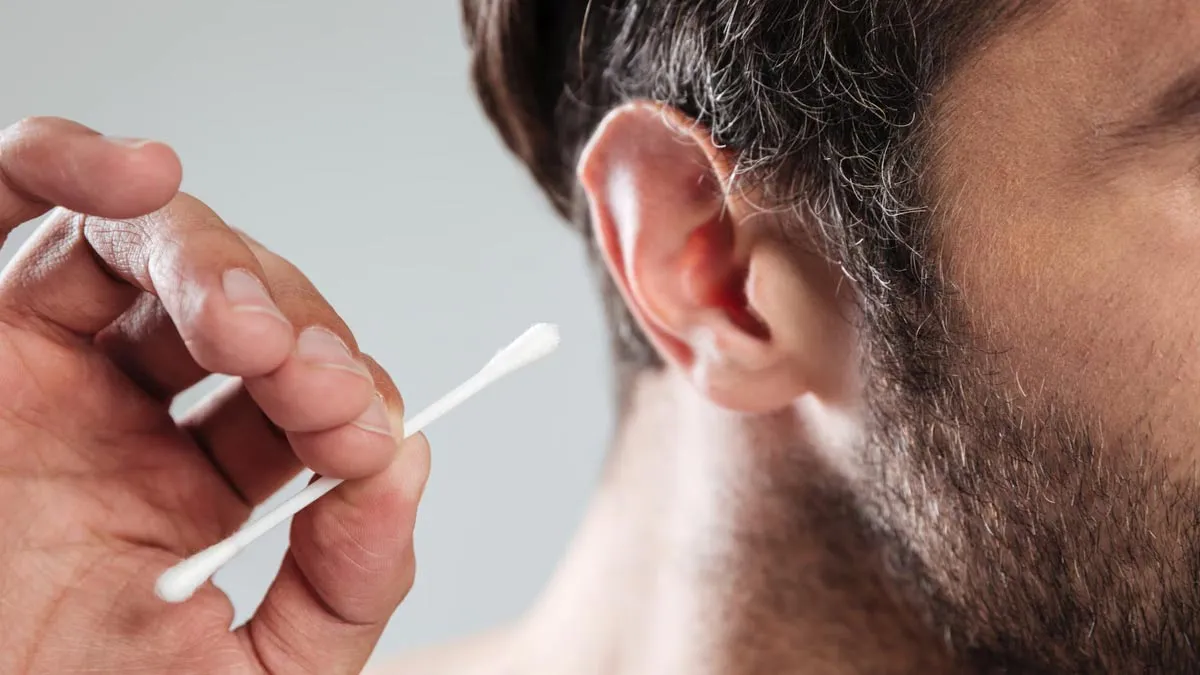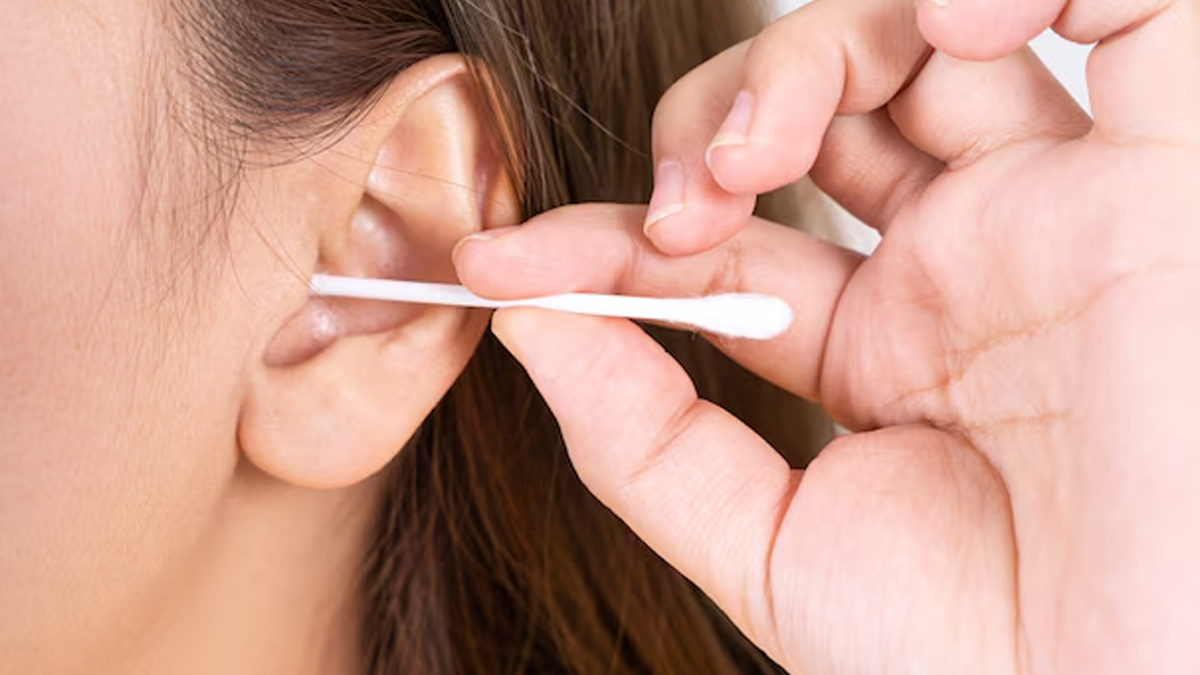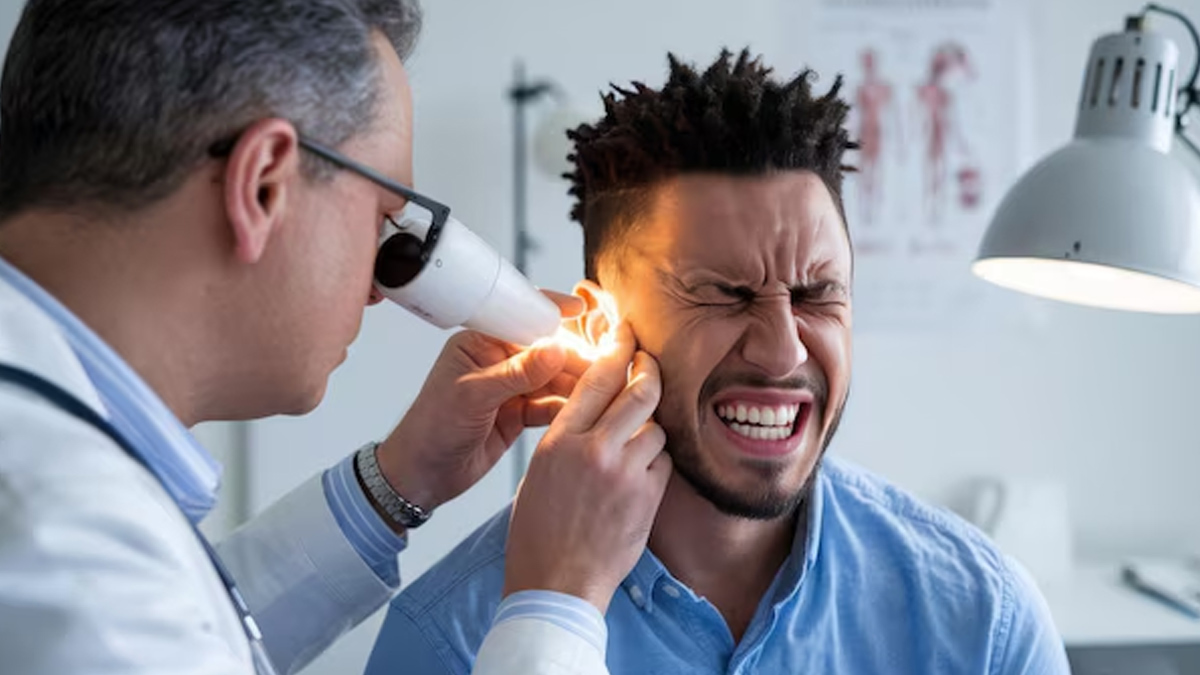
Many of us reach for a cotton swab (commonly known as an earbud) to clean our ears, believing it's the best way to remove earwax. However, what appears to be a harmless habit can actually put your hearing at risk. Improper ear cleaning methods, particularly the use of cotton swabs, can contribute to tinnitus, a persistent ringing, buzzing, or hissing sound in the ears that can be distressing and disruptive.
Table of Content:-
To shed light on this, we spoke to Dr Murali Bhaskar M, MBBS, FDM, Medical Advisor and Telemedicine Practitioner, Hyderabad. He explains how cotton swabs can harm your ears and shares safe ear-cleaning methods.
The Hidden Risks of Cotton Swabs

Many people believe that cotton swabs help in keeping the ears clean, but they can actually do more harm than good. Dr Murali Bhaskar highlights several ways in which cotton swabs can trigger or worsen tinnitus:
1. Eardrum Damage
"The eardrum is extremely delicate, and even gentle pressure from a cotton swab can potentially perforate it. This not only leads to pain and hearing loss but can also cause tinnitus," warns Dr Bhaskar. A perforated eardrum takes time to heal and, in some cases, may require medical intervention.
2. Ear Canal Trauma
The skin lining the ear canal is sensitive and prone to irritation. Dr Bhaskar explains, "Using cotton swabs can scratch or inflame the ear canal, leading to irritation and swelling. This inflammation may impact hearing and contribute to tinnitus."
3. Impacted Earwax
Ironically, instead of removing wax, cotton swabs often push it deeper into the ear canal, where it can become impacted. Dr Bhaskar says, "A wax impaction can put pressure on the eardrum, reducing sound clarity and triggering tinnitus symptoms." This can also lead to a feeling of fullness in the ear, dizziness, and temporary hearing loss.
4. Auditory Ossicle Disruption
The auditory ossicles, tiny bones in the middle ear, help transmit sound to the brain. Excessive pressure from a cotton swab can disrupt their function. "If these delicate bones are affected, it can cause persistent tinnitus and other hearing disturbances," warns Dr Bhaskar.
Also read: Soothe And Heal Boils In And Around The Ear With These Natural Remedies
Safe Ear Cleaning Methods
Fortunately, there are safe and effective ways to maintain ear hygiene without risking tinnitus. Dr Bhaskar shares medically approved techniques to keep your ears clean without causing harm.
For Home Care
Gentle Outer Ear Cleaning
"The safest way to clean your ears is to focus only on the outer part," says Dr Bhaskar. Use a soft, damp washcloth with warm water to gently wipe away dirt and wax from the outer ear.
Over-the-Counter Drops
If you have excessive earwax buildup, consider using cerumenolytic (wax-softening) drops. "These drops help loosen stubborn wax, allowing it to naturally migrate out of the ear," advises Dr Bhaskar.
Gentle Irrigation
For those without eardrum perforations, a soft rubber bulb syringe filled with body-temperature water can help flush out loosened wax. Dr Bhaskar notes, "Irrigation should be done carefully to avoid excessive pressure, which could lead to dizziness or eardrum injury."
When to Seek Medical Help

Certain situations require professional ear cleaning rather than at-home methods. Dr Bhaskar recommends consulting a doctor if you experience:
- Persistent ear pain or discomfort
- Ear drainage or foul-smelling discharge
- Sudden hearing loss or changes in hearing
- A history of ear surgery or eardrum perforation
- Frequent wax buildup that affects hearing
The Importance of Earwax
Many people mistakenly believe that all earwax needs to be removed. In reality, earwax plays an important role in protecting the ears. Dr Bhaskar explains, "Earwax has antibacterial and antifungal properties that help keep the ear canal healthy. It also acts as a natural barrier, preventing dust, dirt, and insects from entering the ear."
Most of the time, earwax migrates outward on its own due to the natural movements of the jaw (chewing and talking). Therefore, routine ear cleaning is usually unnecessary beyond regular showering and wiping the outer ear.
Also read: Here’s How You Can Treat Ear Pain At Home Naturally
Managing Tinnitus If You Already Have It
If you're already experiencing tinnitus, proper ear care becomes even more crucial. Dr Bhaskar advises, "Avoid using cotton swabs or any invasive cleaning methods, as they can worsen tinnitus. Instead, consult a healthcare provider for appropriate management strategies."
Conclusion
While cotton swabs may seem like a convenient ear-cleaning tool, they pose serious risks to ear health, including tinnitus. Instead of risking damage to your ears, follow safe cleaning methods and seek medical assistance when necessary. Dr Bhaskar reminds us, "Your ears are self-cleaning in most cases. The best approach is to leave them alone unless you experience discomfort or hearing issues. When in doubt, always consult a doctor rather than resorting to harmful cleaning practices." By following these expert recommendations, you can protect your hearing and keep tinnitus at bay.
Also watch this video
How we keep this article up to date:
We work with experts and keep a close eye on the latest in health and wellness. Whenever there is a new research or helpful information, we update our articles with accurate and useful advice.
Current Version